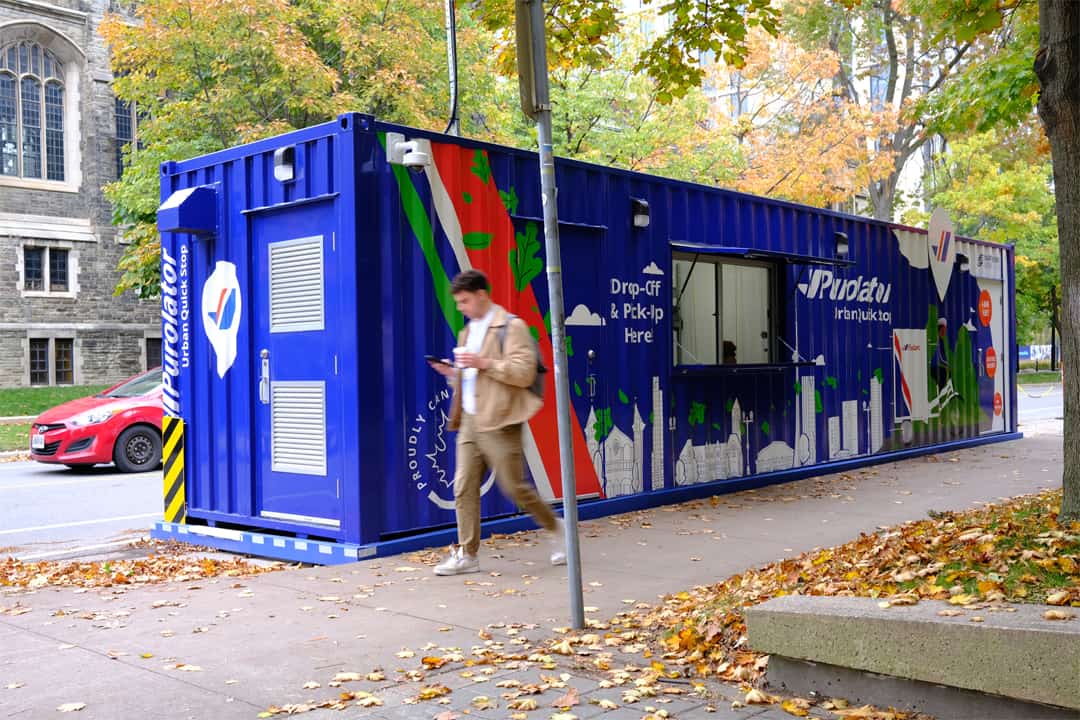On October 13, Purolator — in collaboration with the University of Toronto and the City of Toronto — opened Urban Quick Stop near 60 St. George street. The hub will facilitate “last-mile” package deliveries via ebikes instead of delivery trucks. Last-mile deliveries are when an item is sent from a local warehouse — in this case, the Urban Quick Stop location — to its final destination.
The hub is the second of its kind in Toronto; the first one opened at Bloor and Spadina in July 2022. There are five electric cargo bikes between the two hubs that facilitate the last mile of delivery for locations within a few kilometres of the hubs. The pilot program hopes to make deliveries and transportation more environmentally and economically sustainable in the city. Currently, the transportation sector accounts for 36 per cent of emissions in Toronto.
Students can get a 50 per cent discount on shipping costs for packages sent to or delivered using Purolator. They can access this discount by presenting their student ID when shipping a package at any Purolator centre, including the hub.
Packages are delivered to the hub once a day, where they are either picked up or packed onto an ebike and delivered to their final destination. Ebike couriers ride the bikes in bike-only lanes while conducting deliveries. The smaller size of the ebikes makes parking easier, and they don’t slow traffic as a delivery truck would.
Campus as a living laboratory
Researchers at the university will be using the campus as a “living lab,” collecting and analyzing data on this system. Professor Matthew Roorda — of the Department of Civil & Mineral Engineering at the University of Toronto — and his team will receive and analyze the data received from sensors embedded into the e-bikes.
In a written statement to The Varsity, Roorda specified that he and his team would be assessing greenhouse gas emissions reduction, air quality improvements, and safety impacts on automotive and cyclist traffic. Additionally, they will be looking at delivery efficiency and cost.
“This really is a living laboratory,” said Roorda. “We’ll gain some really valuable insights that will facilitate further innovation in more sustainable and efficient freight transportation across the region.”
The large number of package deliveries at UTSG has made it the perfect location for the pilot research program — students love their online shopping. Roorda wrote, “A lot of deliveries are made on campus, but the roads are often congested… we want to find ways to improve safety and air quality for students on campus.” The use of ebikes will help reduce traffic on campus, ultimately making it a safer place for students.
The program is expected to reduce carbon emissions by 68 tonnes a year. It will also reduce traffic congestion in the city. As a “living lab,” the program will provide researchers with insight and data, which will ultimately help the city develop more sustainable and efficient last-mile delivery in dense urban areas. Innovations and adaptations like this program offer a brighter outlook on the sustainability of future delivery services and methods.


